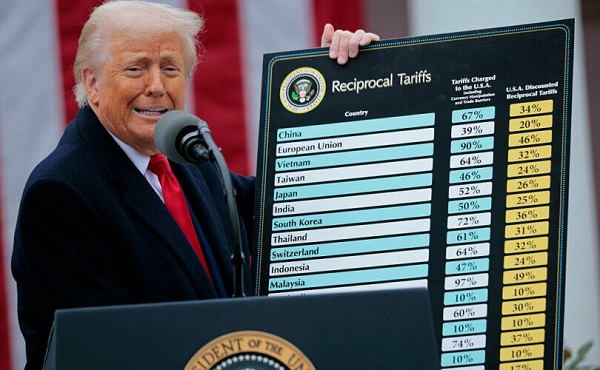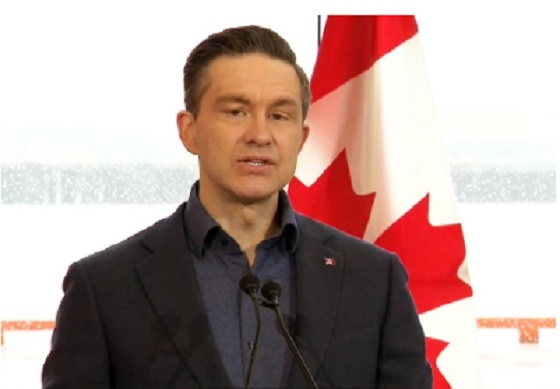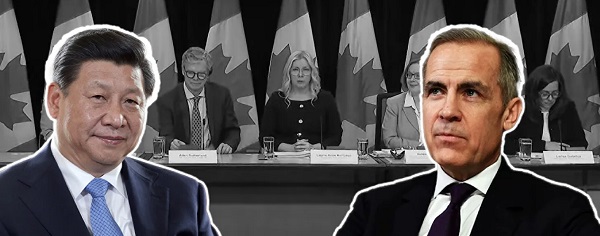Alberta
The letter Teck sent: A scathing rebuke of government

The original application from Teck Resources was made 9 years ago. That almost says enough right there. As environmental regulations changed, the company ‘optimized’ the project to ensure it would remain ‘commercially and environmentally viable’. The work with area First Nations communities was considered ‘ground breaking’ by those communities. Teck had already invested well over 1 billion dollars. But in the end, it appears Teck was not prepared to invest billions more in the environment of hostility toward major resource projects which Canada’s federal government has not been able to control.
Here’s the letter sent by the CEO of Teck Resources to Canada’s Minister of Environment and Climate Change. This letter will do more to stir Western Canadian anxiety than any number of “Buffalo Declarations”.
—————————————
Letter to Minister Wilkinson
Dear Minister:
I am writing to advise that after careful consideration Teck has made the difficult decision to formally withdraw our regulatory application for the Frontier oil sands project from the federal environmental assessment process.
We are disappointed to have arrived at this point. Teck put forward a socially and environmentally responsible project that was industry leading and had the potential to create significant economic benefits for Canadians. Frontier has unprecedented support from Indigenous communities and was deemed to be in the public interest by a joint federal-provincial review panel following weeks of public hearings and a lengthy regulatory process. Since the original application in 2011 we have, as others in the industry have done, continued to optimize the project to further confirm it is commercially viable.
Teck is extremely proud of the work done on this project and the strong relationships that we have formed with local governments, labour organizations, scientists, researchers and many other stakeholders, as well as with affected Indigenous communities. We believe that our agreements with Indigenous communities on Frontier, and very recently the work undertaken by the Alberta government with Indigenous communities in the region, form an important foundation for the future, and we applaud them for this milestone achievement.
However, global capital markets are changing rapidly and investors and customers are increasingly looking for jurisdictions to have a framework in place that reconciles resource development and climate change, in order to produce the cleanest possible products. This does not yet exist here today and, unfortunately, the growing debate around this issue has placed Frontier and our company squarely at the nexus of much broader issues that need to be resolved. In that context, it is now evident that there is no constructive path forward for the project. Questions about the societal implications of energy development, climate change and Indigenous rights are critically important ones for Canada, its provinces and Indigenous governments to work through.
I want to make clear that we are not merely shying away from controversy. The nature of our business dictates that a vocal minority will almost inevitably oppose specific developments. We are prepared to face that sort of opposition. Frontier, however, has surfaced a broader debate over climate change and Canada’s role in addressing it. It is our hope that withdrawing from the process will allow Canadians to shift to a larger and more positive discussion about the path forward. Ultimately, that should take place without a looming regulatory deadline.
Resource development has been at the heart of the Canadian economy for generations. Resource sectors including the Alberta oil sands create jobs; build roads, schools and hospitals; and contribute to a better standard of living for all Canadians. At the same time, there is an urgent need to reduce global carbon emissions and support action on climate change.
As a proudly Canadian company for over 100 years, we know these two priorities do not have to be in conflict. Our nation is uniquely positioned with abundant natural resources coupled with strong environmental regulations and a deeply engrained culture of social responsibility. We can build on that foundation and be a global provider of sustainable, climate-smart resources to support the world’s transition to a low carbon future. And yes, that can include low-carbon energy produced from the Alberta oil sands from projects like Frontier, using best-in-class technology, which would displace less environmentally and ethically sound oil sources.
At Teck, we believe deeply in the need to address climate change and believe that Canada has an important role to play globally as a responsible supplier of natural resources. We support strong actions to enable the transition to a low carbon future. We are also strong supporters of Canada’s action on carbon pricing and other climate policies such as legislated caps for oil sands emissions.
The promise of Canada’s potential will not be realized until governments can reach agreement around how climate policy considerations will be addressed in the context of future responsible energy sector development. Without clarity on this critical question, the situation that has faced Frontier will be faced by future projects and it will be very difficult to attract future investment, either domestic or foreign.
Teck has not taken this decision lightly. It is our hope that the decision to withdraw will help to create both the space and impetus needed for this critical discussion to take place for the benefit of all Canadians.
Sincerely,
Don Lindsay
President and Chief Executive Officer
Teck Resources Limited
Alberta
Alberta takes big step towards shorter wait times and higher quality health care

From the Fraser Institute
On Monday, the Smith government announced that beginning next year it will change the way it funds surgeries in Alberta. This is a big step towards unlocking the ability of Alberta’s health-care system to provide more, better and faster services for the same or possibly fewer dollars.
To understand the significance of this change, you must understand the consequences of the current (and outdated) approach.
Currently, the Alberta government pays a lump sum of money to hospitals each year. Consequently, hospitals perceive patients as a drain on their budgets. From the hospital’s perspective, there’s little financial incentive to serve more patients, operate more efficiently and provide superior quality services.
Consider what would happen if your local grocery store received a giant bag of money each year to feed people. The number of items would quickly decline to whatever was most convenient for the store to provide. (Have a favourite cereal? Too bad.) Store hours would become less convenient for customers, alongside a general decline in overall service. This type of grocery store, like an Alberta hospital, is actually financially better off (that is, it saves money) if you go elsewhere.
The Smith government plans to flip this entire system on its head, to the benefit of patients and taxpayers. Instead of handing out bags of money each year to providers, the new system—known as “activity-based funding”—will pay health-care providers for each patient they treat, based on the patient’s particular condition and important factors that may add complexity or cost to their care.
This turns patients from a drain on budgets into a source of additional revenue. The result, as has been demonstrated in other universal health-care systems worldwide, is more services delivered using existing health-care infrastructure, lower wait times, improved quality of care, improved access to medical technologies, and less waste.
In other words, Albertans will receive far better value from their health-care system, which is currently among the most expensive in the world. And relief can’t come soon enough—for example, last year in Alberta the median wait time for orthopedic surgeries including hip and knee replacements was 66.8 weeks.
The naysayers argue this approach will undermine the province’s universal system and hurt patients. But by allowing a spectrum of providers to compete for the delivery of quality care, Alberta will follow the lead of other more successful universal health-care systems in countries such as Australia, Germany, the Netherlands and Switzerland and create greater accountability for hospitals and other health-care providers. Taxpayers will get a much better picture of what they’re paying for and how much they pay.
Again, Alberta is not exploring an untested policy. Almost every other developed country with universal health care uses some form of “activity-based funding” for hospital and surgical care. And remember, we already spend more on health care than our counterparts in nearly all of these countries yet endure longer wait times and poorer access to services generally, in part because of how we pay for surgical care.
While the devil is always in the details, and while it’s still possible for the Alberta government to get this wrong, Monday’s announcement is a big step in the right direction. A funding model that puts patients first will get Albertans more of the high-quality health care they already pay for in a timelier fashion. And provide to other provinces an example of bold health-care reform.
Alberta
Alberta’s embrace of activity-based funding is great news for patients

 From the Montreal Economic Institute
From the Montreal Economic Institute
Alberta’s move to fund acute care services through activity-based funding follows best practices internationally, points out an MEI researcher following an announcement made by Premier Danielle Smith earlier today.
“For too long, the way hospitals were funded in Alberta incentivized treating fewer patients, contributing to our long wait times,” explains Krystle Wittevrongel, director of research at the MEI. “International experience has shown that, with the proper funding models in place, health systems become more efficient to the benefit of patients.”
Currently, Alberta’s hospitals are financed under a system called “global budgeting.” This involves allocating a pre-set amount of funding to pay for a specific number of services based on previous years’ budgets.
Under the government’s newly proposed funding system, hospitals receive a fixed payment for each treatment delivered.
An Economic Note published by the MEI last year showed that Quebec’s gradual adoption of activity-based funding led to higher productivity and lower costs in the province’s health system.
Notably, the province observed that the per-procedure cost of MRIs fell by four per cent as the number of procedures performed increased by 22 per cent.
In the radiology and oncology sector, it observed productivity increases of 26 per cent while procedure costs decreased by seven per cent.
“Being able to perform more surgeries, at lower costs, and within shorter timelines is exactly what Alberta’s patients need, and Premier Smith understands that,” continued Mrs. Wittevrongel. “Today’s announcement is a good first step, and we look forward to seeing a successful roll-out once appropriate funding levels per procedure are set.”
The governments expects to roll-out this new funding model for select procedures starting in 2026.
* * *
The MEI is an independent public policy think tank with offices in Montreal, Ottawa, and Calgary. Through its publications, media appearances, and advisory services to policymakers, the MEI stimulates public policy debate and reforms based on sound economics and entrepreneurship.
-

 2025 Federal Election1 day ago
2025 Federal Election1 day agoHarper Endorses Poilievre at Historic Edmonton Rally: “This Crisis Was Made in Canada”
-

 conflict2 days ago
conflict2 days agoZelensky Alleges Chinese Nationals Fighting for Russia, Calls for Global Response
-

 2025 Federal Election1 day ago
2025 Federal Election1 day agoMark Carney’s radical left-wing, globalist record proves he is Justin Trudeau 2.0
-

 Business1 day ago
Business1 day agoTrump’s tariff plan replaces free trade with balanced trade. Globalists hate that.
-

 2025 Federal Election1 day ago
2025 Federal Election1 day agoAn In-Depth Campaign Trail “Interview” With Pierre Poilievre
-

 2025 Federal Election2 days ago
2025 Federal Election2 days agoPoilievre Will Bring in ‘One and Done’ Resource Approvals, and Ten Specific Projects Including LNG Canada Phase II
-

 Bruce Dowbiggin2 days ago
Bruce Dowbiggin2 days agoBettman Gives Rogers Keys To The Empire. Nothing Will Change
-

 2025 Federal Election2 days ago
2025 Federal Election2 days agoElection Security Briefing Confirms CCP-Linked Operation Boosted Carney






